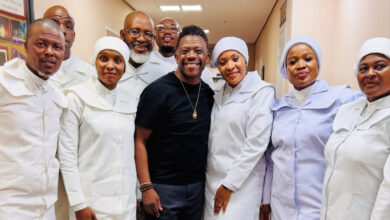Entertainment
Zuckerberg And His Wife Write The Most Touching Letter To Their New Born Baby

Mark Zuckerberg’s wife Dr. Priscilla Chan gave birth to the couple’s first child, a daughter, early last week. Her name is Maxima Chan Zuckerberg. The happy parents have written letter to their daughter, which they posted on Facebook Tuesday. The letter Zuckerberg and Chan wrote is ver beautiful, deep and inspirational. Trust us, it will make you feel all tingly in your stomach Read it below….
Dear Max,
Your mother and I don’t yet have the words to describe the hope you give us for the future. Your new life is full of promise, and we hope you will be happy and healthy so you can explore it fully. You’ve already given us a reason to reflect on the world we hope you live in.
Like all parents, we want you to grow up in a world better than ours today.
While headlines often focus on what’s wrong, in many ways the world is getting better. Health is improving. Poverty is shrinking. Knowledge is growing. People are connecting. Technological progress in every field means your life should be dramatically better than ours today.
We will do our part to make this happen, not only because we love you, but also because we have a moral responsibility to all children in the next generation.
We believe all lives have equal value, and that includes the many more people who will live in future generations than live today. Our society has an obligation to invest now to improve the lives of all those coming into this world, not just those already here.
But right now, we don’t always collectively direct our resources at the biggest opportunities and problems your generation will face.
Consider disease. Today we spend about 50 times more as a society treating people who are sick than we invest in research so you won’t get sick in the first place.
Medicine has only been a real science for less than 100 years, and we’ve already seen complete cures for some diseases and good progress for others. As technology accelerates, we have a real shot at preventing, curing or managing all or most of the rest in the next 100 years.
Today, most people die from five things — heart disease, cancer, stroke, neurodegenerative and infectious diseases — and we can make faster progress on these and other problems.
Once we recognize that your generation and your children’s generation may not have to suffer from disease, we collectively have a responsibility to tilt our investments a bit more towards the future to make this reality. Your mother and I want to do our part.




